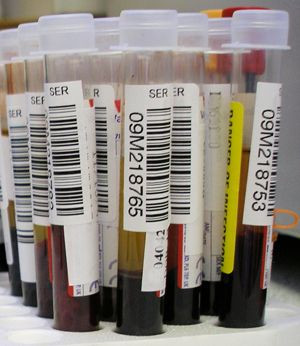Survival or Death After Surgery: A Simple Blood Test May Provide the Answer

A blood test can now determine whether a patient will survive a heart attack within a month after the surgery.
The blood test works by measuring levels of a protein called troponin in the blood. Higher levels of this protein indicate that the heart muscles are damaged. People undergoing heart surgeries are monitored for their troponin levels but the new study says that measuring troponin levels for patients undergoing other surgeries (non-cardiac) could also be helpful in predicting their chances of surviving a heart attack.
“After surgery, heart attack can be a catastrophic complication. It’s difficult to diagnose a heart attack following surgery because the pain medications patients receive often mask chest pain. This blood test may make it easier to identify patients at the highest risk of death," said Peter Nagele, MD, lead investigator from Washington University.
The present study was based on the test results of more than 15,000 people from eight countries on five continents. Researchers plan to enroll another 40,000 people for later phases of the trials. Patients who had the highest troponin levels in the blood had a mortality rate (within the first 30 days post-surgery) of nearly 17 percent. Researchers say that many people undergoing non-cardiac surgeries die within the first 30 days of the surgery.
“Surgery is a major stress test. You are exposing someone to a major trauma, and those patients tend to be at a higher risk for heart attack. The presence of troponin in the blood represents a ‘red flag’ for potential problems during the first 30 days, and perhaps the first year following a major operation," Nagele said. Researchers say that more trials are required to test whether intervention is possible in reducing death risk in people who have high troponin levels post-surgery.
An advanced version of this test, that works on the same principle but is more sensitive, will undergo similar testing soon. The blood tests are not yet approved by the Food and Drug Administration (FDA) in the United States but future success may change that. “Both tests measure the same proteins, but the new one has a higher degree of sensitivity. Now we want to know whether we can measure changes in troponin levels before and after surgery," he says.
The study was published in The Journal of American Medical Association.
Published by Medicaldaily.com



























